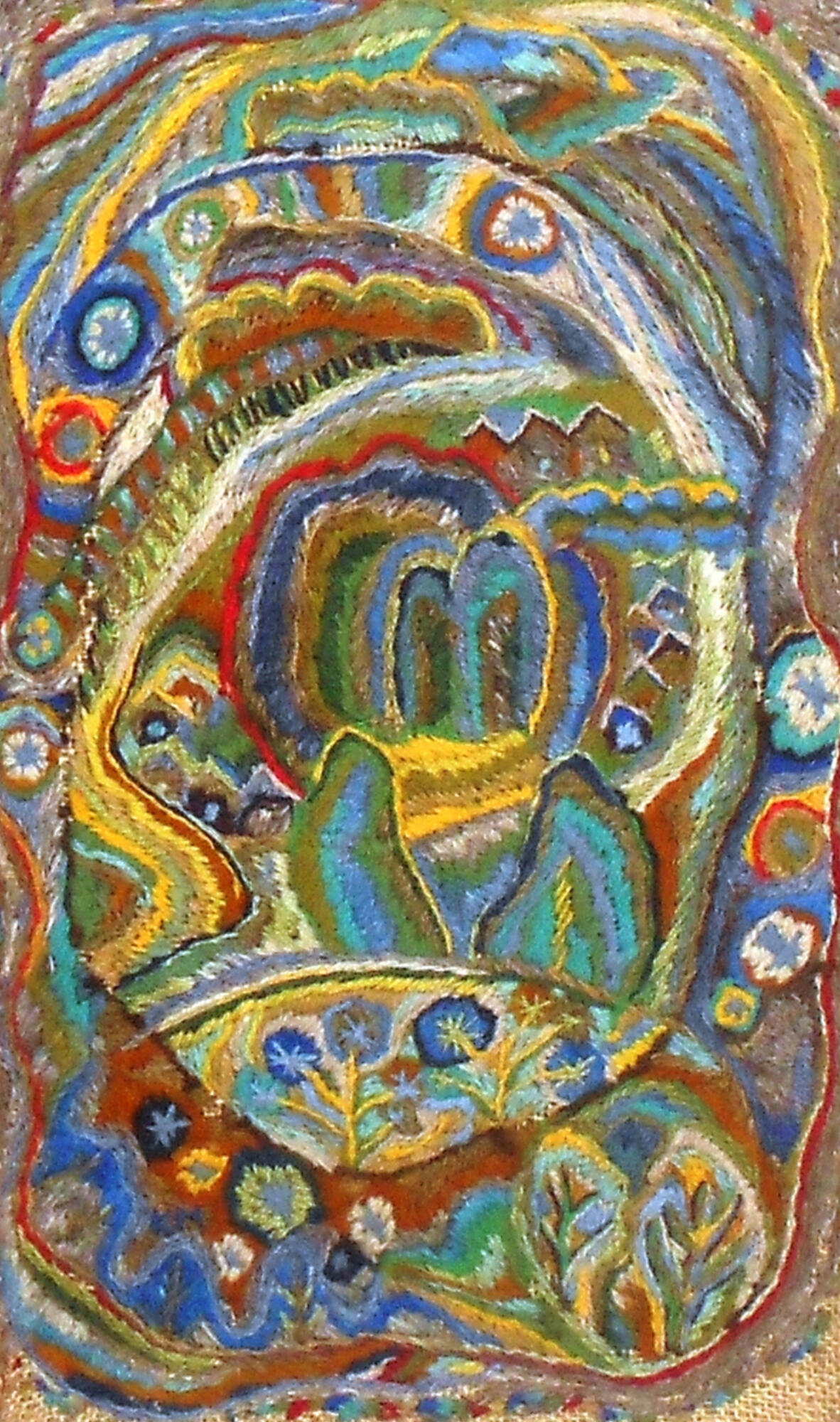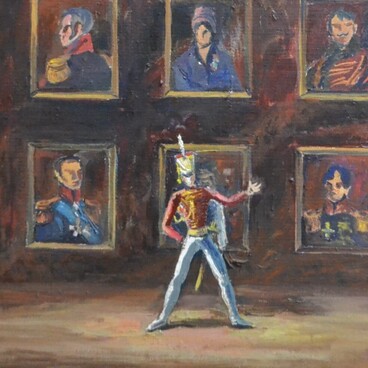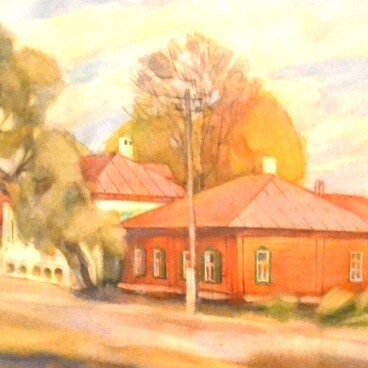A tapestry panel is a hand-woven carpet, made according to a sample pattern. Usually plots and ornaments were depicted on tapestry. For example, flowers, branches, animals, or geometric shapes. The production of such panels was expensive and time consuming, so the products were available only to wealthy people.
This tapestry was presented to the composer Tikhon Khrennikov for his 70th anniversary by Oscar Feltsman. The color scheme of the carpet was chosen in such a way that the panel would fit into almost any interior. The author chose a natural drawing — in a whirlwind of objects, he depicted blue mountains, small brown houses, a blue river and trees with a lush crown.
Feltsman was a close friend of Khrennikov, the composer and songwriter of the songs ‘My Black Sea’, ‘Danube Wreath’, ‘Motor Ship’, ‘My Vasya’, ‘Lilies of the Valley’, ‘Good Morning’, ‘The Song Goes in a Circle’, ‘Nothing I see’, ‘Waltz by Candlelight’, ‘Man in Love’.
The musician was born in 1921 in Odessa in the family of an orthopedic surgeon. Since childhood, he studied music — first he played the violin, then moved to the piano class. Feltsman wrote: ‘At the age of five I decided: I will be a pianist and composer. And then he wrote his first composition — “Autumn”. It was very sad music. Now I realize that it is somehow illogical: it seems that a five-year-old boy should not have any special experiences, only joyful emotions. And suddenly — “Autumn”. When I came to Moscow to enter the conservatory, I already had sonatas and sonatinas in my arsenal. All the time I was taught as a serious composer. I gave concerts where I played Beethoven, Bach, Rachmaninoff’.
When the war began, the Feltsman family was evacuated from Novosibirsk. There the composer wrote music for the Philharmonic Society, the Leningrad Alexandrinsky Theater, worked as the head of the musical section of the Belarusian State Jewish Theater. In the same period, Feltsman wrote an operetta based on the play by Valentin Kataev ‘Blue handkerchief’.
In 1945 he returned with his wife to Moscow, began working in the capital’s theaters and creating music for films.
Khrennikov donated the friend’s present to the collection of the house-museum.
This tapestry was presented to the composer Tikhon Khrennikov for his 70th anniversary by Oscar Feltsman. The color scheme of the carpet was chosen in such a way that the panel would fit into almost any interior. The author chose a natural drawing — in a whirlwind of objects, he depicted blue mountains, small brown houses, a blue river and trees with a lush crown.
Feltsman was a close friend of Khrennikov, the composer and songwriter of the songs ‘My Black Sea’, ‘Danube Wreath’, ‘Motor Ship’, ‘My Vasya’, ‘Lilies of the Valley’, ‘Good Morning’, ‘The Song Goes in a Circle’, ‘Nothing I see’, ‘Waltz by Candlelight’, ‘Man in Love’.
The musician was born in 1921 in Odessa in the family of an orthopedic surgeon. Since childhood, he studied music — first he played the violin, then moved to the piano class. Feltsman wrote: ‘At the age of five I decided: I will be a pianist and composer. And then he wrote his first composition — “Autumn”. It was very sad music. Now I realize that it is somehow illogical: it seems that a five-year-old boy should not have any special experiences, only joyful emotions. And suddenly — “Autumn”. When I came to Moscow to enter the conservatory, I already had sonatas and sonatinas in my arsenal. All the time I was taught as a serious composer. I gave concerts where I played Beethoven, Bach, Rachmaninoff’.
When the war began, the Feltsman family was evacuated from Novosibirsk. There the composer wrote music for the Philharmonic Society, the Leningrad Alexandrinsky Theater, worked as the head of the musical section of the Belarusian State Jewish Theater. In the same period, Feltsman wrote an operetta based on the play by Valentin Kataev ‘Blue handkerchief’.
In 1945 he returned with his wife to Moscow, began working in the capital’s theaters and creating music for films.
Khrennikov donated the friend’s present to the collection of the house-museum.



